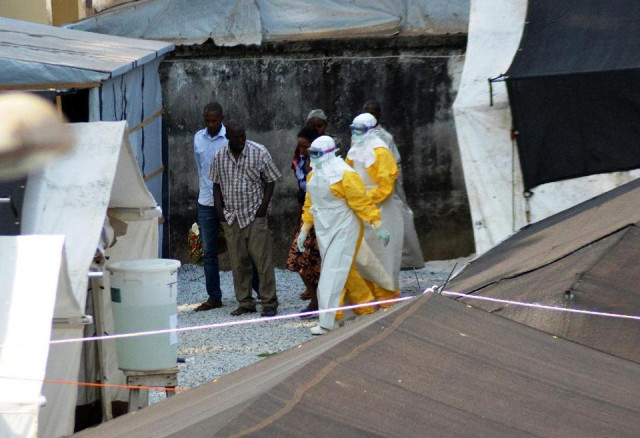J&J Ebola vaccine to start clinical trials in early 2015
According to United Nations estimates, Ebola disease has killed 1,900 in West Africa since March

J&J said on Thursday that clinical trials of its new vaccine, which includes technology from Danish biotech firm Bavarian Nordic, would commence in early 2015.
The move follows a decision to begin initial human testing of a GlaxoSmithKline vaccine this month and plans to test one developed by Canadian government scientists, which has been licensed to NewLink Genetics, in the autumn.
Human tests on the J&J vaccine were previously not expected to start until late 2015 or early 2016.
J&J's long-term goal is to develop a vaccine that can protect against both the Zaire and Sudan strains of Ebola, as well as a related condition called Marburg disease.
But the programme has been simplified in light of the current outbreak. "Because of the emergency we decided to focus on the Ebola Zaire strain, which is the one in the West Africa outbreak, and that's why we can accelerate the programme significantly," Chief Scientific Officer Paul Stoffels told Reuters.
As with the GSK and NewLink programmes, J&J is working on the clinical trials with the US.
National Institute of Allergy and Infectious Diseases, part of National Institutes of Health. "The crisis is so important here, and still expanding, that more than one approach is warranted, in case the epidemic doesn't come under control in the coming months," Stoffels said.
All of the initial Phase I trials will enroll healthy volunteers with the goal of determining whether the experimental vaccines are safe and whether they provoke a protective immune response.
Stoffels said it had not yet been decided where trials on the J&J vaccine would be conducted or how many subjects would be involved.
The race to develop new drugs and vaccines has been spurred by a World Health Organisation ruling that it is ethical to use experimental products in the current epidemic, given the high death toll.
Governments and aid organisations have scrambled to contain the disease, which according to the United Nations agency has killed more than 1,900 in West Africa since March.
J&J said its vaccine, which was developed by its Crucell unit in the Netherlands, provided complete protection against the Zaire strain of Ebola when tested on macaque monkeys.
Like a number of other experimental vaccines against various diseases that are now in development, it uses a common cold virus, called an adenovirus, to carry its payload.
Immunisation with the J&J vaccine consists of two injections- one to prime the immune system and a second to boost the response. They were given two months apart in the monkey tests. By contrast, researchers are testing just a single shot of GSK's vaccine.
How safe and effective J&J's product will be in humans remains to be seen, but more than 1,000 people have already received similar experimental vaccines from Crucell in clinical trials for other diseases with no apparent ill effects, offering some reassurance.
Bavarian Nordic, meanwhile, has used a similar approach in producing a smallpox vaccine that has been stockpiled around the world and tested on more than 7,300 people.
J&J is also stepping up research into potential drugs for Ebola by undertaking an intensive review of known biological pathways used by the virus to see if previously tested medicines might help.



















COMMENTS
Comments are moderated and generally will be posted if they are on-topic and not abusive.
For more information, please see our Comments FAQ